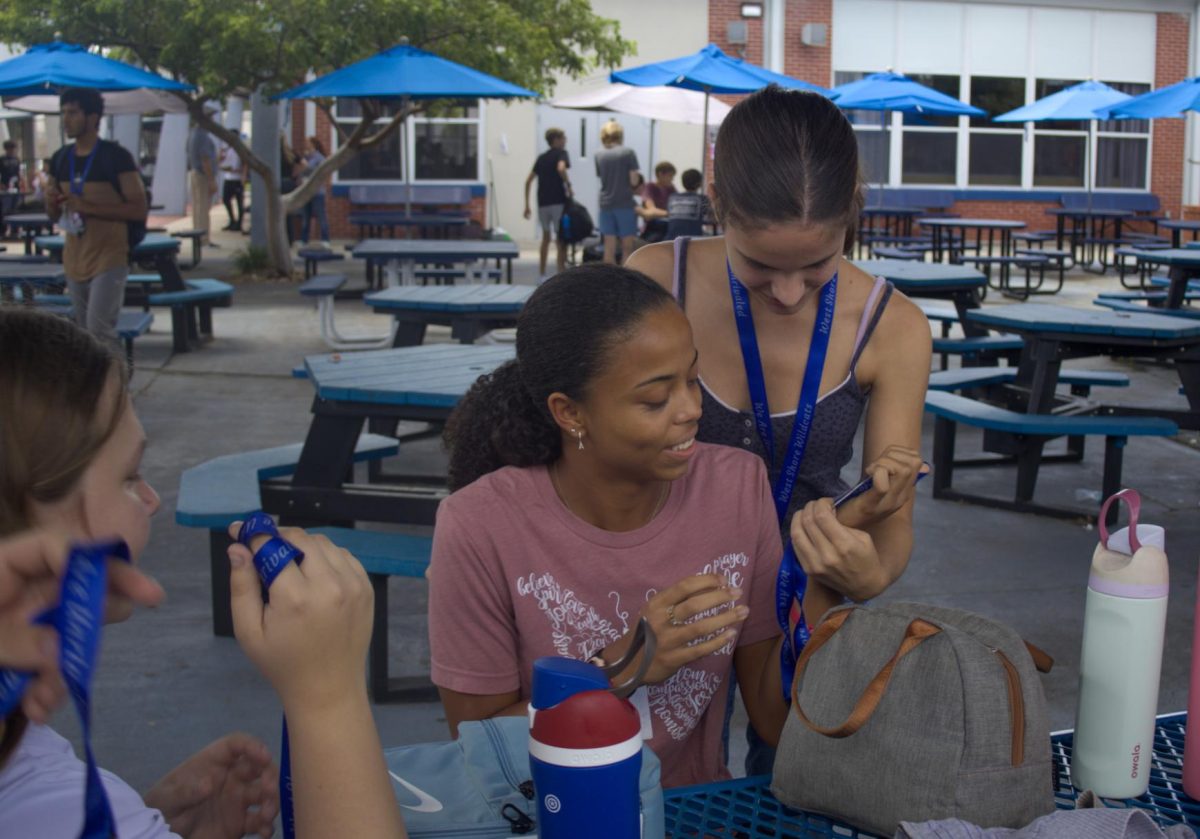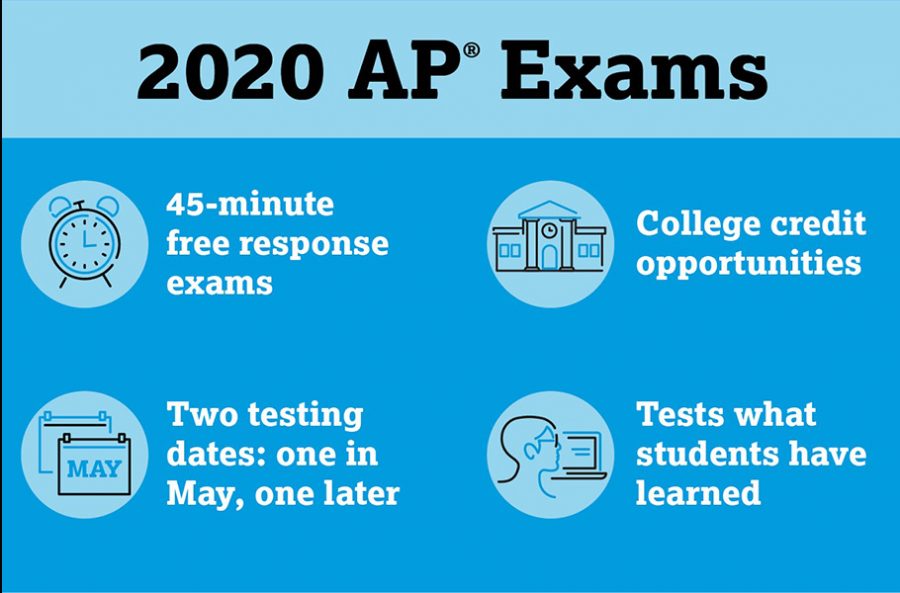AP students and teachers adapt to changes
College Board has adjusted its AP exam formats due the COVID-19 pandemic.
April 28, 2020
Students have been preparing all year for the Advanced Placement exams in May. But, since school was canceled in March due to COVID-19, everything has been uncertain. However, College Board announced in early April that the exams will still occur, but will be condensed depending on the subject.
“My AP exams have changed to two FRQ questions to be answered in 45 minutes,” Jamarr Cole (12) said. “I don’t like how my grade is now dependent on how I do just two questions, as opposed to a traditional AP exam with multiple choice and an FRQ section.”
AP World History teacher Kirk Murphy agrees with Cole.
“I do not like the change,” he said. “It’s all down to this one question. Before, it was a combination of multiple choice, short answer, DBQ and one other long essay. Now you have all your eggs in one basket.”
Because AP teachers have completed presenting new information to help students prepare for the exam, review strategies have become the norm.
“For my AP classes, more review worksheets and tests have been assigned,” Mckenna Caban (10) said. “I like it because it gives me a chance to focus on specific parts for review, and gives me time to review other sections and classes.”
Although the exams have been minimized, the students’ preparation efforts may not be.
“I am doing more work to review for the AP exams this year than last because of the decreased time in the classroom,” Caban said. “It does create some more work to study without being in the physical classroom every day.”
Tehya Bahsoun (10) is taking AP classes in addition other courses offered at West Shore, and said she sees a difference in the volume of homework given.
“I’ve noticed that many of my AP and more difficult classes have short, concise workloads, she said. “Whereas the ‘easy’ classes seem to suddenly have much more work for no apparent reason, considering we didn’t do much when we were actually in school.”
Teachers have been making themselves available for the students to contact them with questions or concerns they may have through various platforms such as Google Classroom and Google Meet.
“They are doing their best and I appreciate it,” Charles Mitchell (10) said. “We are all going through tough times, and we have to adapt and be more understanding.”
Although students have used their class time to prepare for AP exams for months, the test-taking strategies they’ve been perfecting might have to alter due to College Board’s changes.
“I have told several students that the essays they have been writing were much too long for a limited time period,” Murphy said. “The time period has become more limited, and they will need to adjust their writing style to compensate.”
College Board held an informative webinar on April 16, stating that the exams will not be more difficult for the students to achieve a passing grade on the exams, which provides some comfort.
“I think that it won’t be harder to pass the exam because everyone is in the same boat and the questions will be adjusted because of the situation,” Caban said. “There is definitely more stress because of the changes to exam directions and format.”


![Sophomore Isabelle Gaudry walks through the metal detector, monitored by School Resource Officer Valerie Butler, on Aug. 13. “I think [the students have] been adjusting really well," Butler said. "We've had no issues, no snafus. Everything's been running smoothly, and we've been getting kids to class on time.”](https://westshoreroar.com/wp-content/uploads/2025/08/IMG_9979-1200x800.jpg)













































